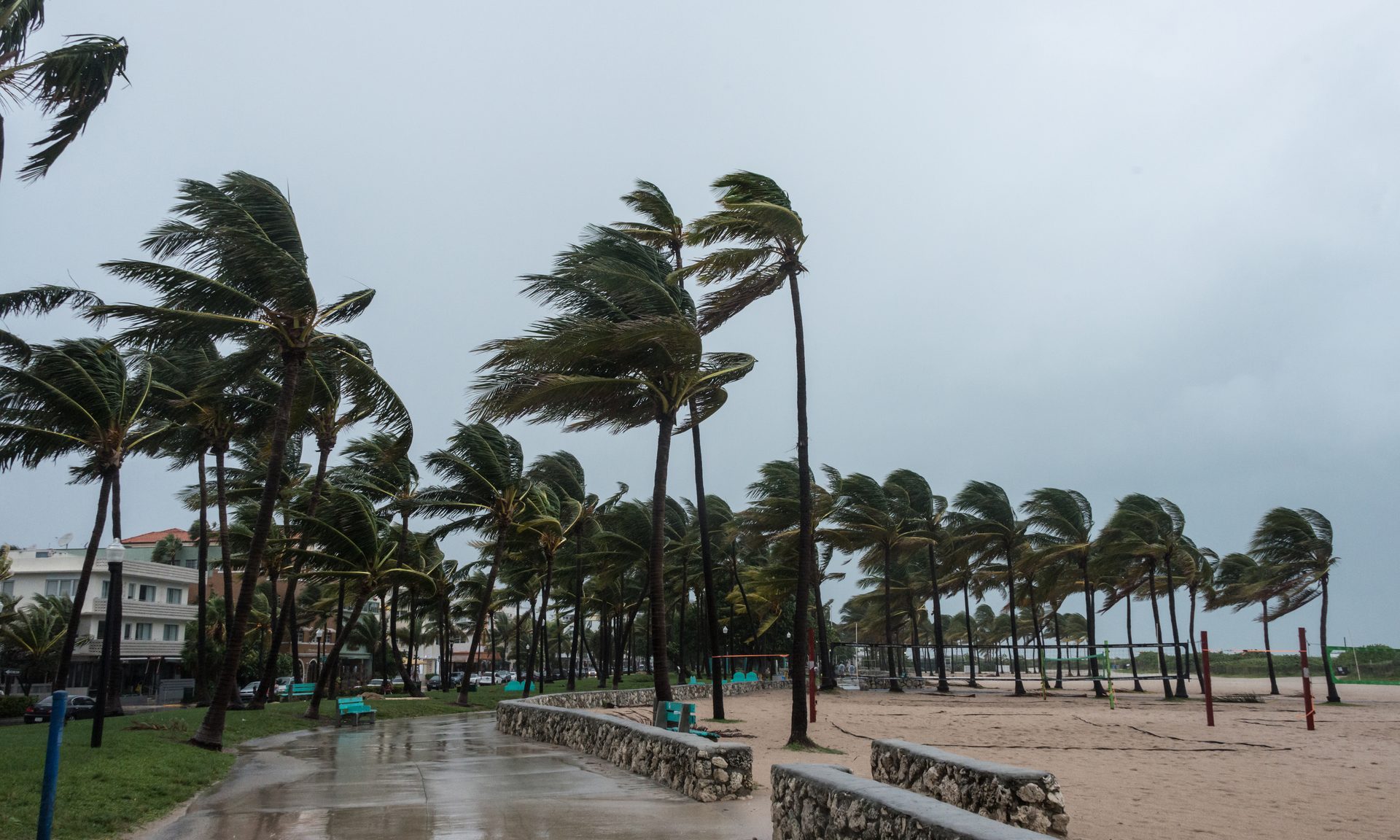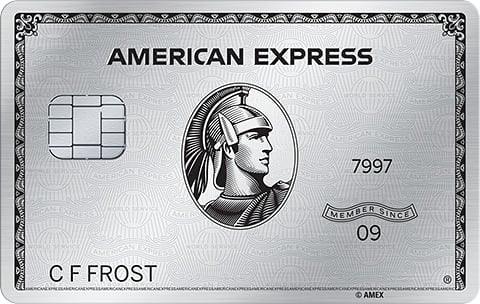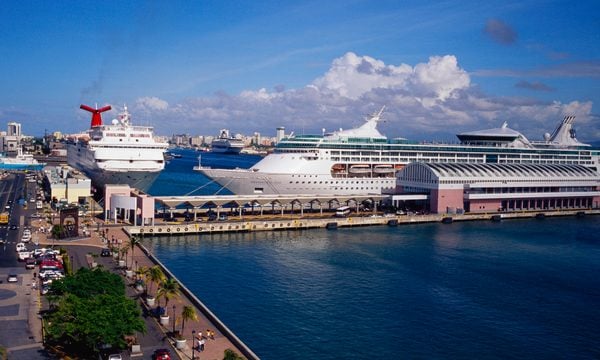Cruising During Hurricane Season? Here’s What I Wish I Knew
A hurricane hit my first cruise. Here’s what I learned about preparing for storm-season sailings.

Many or all of the products on this page are from partners who compensate us when you click to or take an action on their website, but this does not influence our evaluations or ratings. Our opinions are our own.
The first cruise I ever took — the Sun Princess in October 2024 — happened to collide with Hurricane Milton. Leave it to me to take my inaugural sailing during peak storm season.
Honestly, I wasn’t even sure I’d make it to the ship at all. My flight from San Francisco to Fort Lauderdale was almost rerouted; the gate agent warned us we might land in Miami instead. In the grand scheme of things, a 45-minute Uber ride didn’t sound catastrophic — but when you’re starting your first ever cruise, every unknown feels oversized.
Luckily, my flight did land at Fort Lauderdale-Hollywood International Airport as planned. The cruise itself? Not so simple. The Sun Princess didn’t actually set sail as scheduled. We left a full day late, as the port was closed to new ships coming in.
For me, that meant an unexpected bonus day in Florida. But for the folks still onboard from the previous sailing, “extra day at sea” might have meant missed flights and an extra missed day of work, plus a scramble to rebook everything once they finally returned to shore.
That’s when I learned: Cruising during hurricane season isn’t necessarily a dealbreaker, but it is a gamble. Here’s what you should know before booking a cruise during hurricane season.
When is hurricane season?
The Atlantic hurricane season typically runs from June 1 through Nov. 30, peaking in September and October, according to the National Oceanic and Atmospheric Administration. The Caribbean and Gulf of Mexico see the brunt of it, though storms have been known to hit in other months, too.
It’s a popular time to sail, as Caribbean cruises during these months also tend to be the cheapest.
And if you have a cruise planned this fall, you should be prepared. NOAA's outlook for the 2025 Atlantic hurricane season predicts a 50% chance of an above-normal season, meaning it’s more likely we see major hurricanes than usual.
“This updated hurricane outlook serves as a call to action to prepare now, in advance, rather than delay until a warning is issued,” said Acting NOAA Administrator Laura Grimm in a prepared statement.
What really happens when there’s a storm?
If you’re cruising and a storm is in the forecast, it’s likely you won’t even encounter it.
“Those viral videos of ships rocking in the middle of a storm certainly look scary, but cruise lines take extraordinary measures to avoid sailing directly into hurricanes,” said Jason Margulies, a personal injury lawyer who focuses on maritime and cruise ship injury law, in an email with NerdWallet.
He added that often those videos go viral because they are uncommon — not because they are the norm.
Rerouting is common
Typically, the biggest danger to cruise passengers during a hurricane is that their itinerary doesn’t typically go as planned. I departed a day later, and other passengers stayed on board a day longer.
In other cases, you could skip a port you thought you were going to cruise to, or end up at a different port that wasn’t on the original itinerary.
“Ships are tracking weather constantly, and if there is any chance of crossing paths with a hurricane, the captain will change course long before it gets that close,” Margulies says.
For example, it’s common that you might swap an Eastern Caribbean route for a Western one.
Margulies said captains consider factors such as how far the ship can go on its current fuel, whether a port has space to take a big ship at short notice, and how swiftly customs and docking arrangements can be handled in determining which port to go to instead.
Ships are designed to keep you safe
Captains have sophisticated forecasts and the ability to outrun storms. Cruise ships can move faster than a hurricane in most cases. Though they rarely go that fast (it is a cruise, after all), cruises can typically reach speeds of more than 30 miles per hour. Hurricanes, meanwhile, typically only reach forward speeds of 15-20 miles per hour.
But if you do end up in rough waters, Margulies says you are safe.
“Modern ships are built with stabilizers and navigation systems designed to handle rough conditions,” he says. Stabilizers are fins or rotors that are used to cut down on the rolling and pitching that might make passengers feel seasick.
Your cruise might look a little different
That said, some aspects of your cruise may change. Things that could blow away or cause injury, such as deck chairs and outdoor decorations, are often put away or locked down.
Schedule changes will be communicated
You might hear announcements about delays or itinerary changes over the loudspeaker. Alerts on smartphone apps, in-room TVs and even text messages are also becoming more common.
Opt in to alerts, and make sure you can actually receive them. For example, if you’re on an international trip where you didn’t purchase an international phone plan, ensure you can get alerts the other way, such as by downloading your cruise line’s app.
Get the 'Cheat Codes' to Cheaper Travel
Unlocking the secret to saving a ton on travel is easier than you think. 📤 Our free newsletter shows you how in 5 min. or less.

How to prepare if you cruise during hurricane season
My crash-course takeaways from sailing through Hurricane Milton:
Arrive early
If your cruise departs Saturday, don’t plan to land Friday night. Come in at least a day early (two if you can). If my flight had been rerouted or canceled altogether, that cushion would have been my safety net.
Build in flexibility
If you can, don’t book a flight home the same day your ship docks. That could have been rough for passengers on the cruise before mine, who had to spend an extra day at sea. Their flights would’ve taken off without them if they intended to leave that day.
Travel insurance is worth it
If you don’t have that kind of flexibility, you might also buy travel insurance. There are usually caveats, like travel insurance typically won’t cover hurricane-related issues once the hurricane has already been named.
The storm only added a day of beach time to my trip (lucky me). But had it meant a delay or missed connection, then insurance could have covered the cost of rebooking another flight.
» Learn more: The best cruise insurance right now
Use the right credit card
Now speaking of travel insurance, you may not need to pay for it. Certain credit cards include built-in travel insurance that can reimburse you if weather delays or cancels parts of your trip. Check the terms on your credit card or call the issuer to confirm the coverage terms.
Top cards with travel insurance
Annual fee
$95.
$795.
$895.
$95.
Travel protections (not a comprehensive list)
• Trip delay: Up to $500 per ticket for delays more than 12 hours.
• Trip cancellation: Up to $10,000 per person and $20,000 per trip. Maximum benefit of $40,000 per 12-month period.
• Trip interruption: Up to $10,000 per person and $20,000 per trip. Maximum benefit of $40,000 per 12-month period.
• Baggage delay: Up to $100 per day for five days.
• Lost luggage: Up to $3,000 per passenger.
• Trip delay: Up to $500 per ticket for delays more than 6 hours.
• Trip cancellation: Up to $10,000 per person and $20,000 per trip. Maximum benefit of $40,000 per 12-month period.
• Trip interruption: Up to $10,000 per person and $20,000 per trip. Maximum benefit of $40,000 per 12-month period.
• Baggage delay: Up to $100 per day for five days.
• Lost luggage: Up to $3,000 per passenger.
• Trip delay: Up to $500 per trip for delays more than 6 hours.
• Trip cancellation: Up to $10,000 per trip. Maximum benefit of $20,000 per 12-month period.
• Trip interruption: Up to $10,000 per trip. Maximum benefit of $20,000 per 12-month period.
• Lost luggage: Up to $3,000 per passenger.
Terms apply.
• Trip delay: Up to $500 per ticket for delays more than 12 hours.
• Trip cancellation: Up to $10,000 per trip. Maximum benefit of $20,000 per 12-month period.
• Trip interruption: Up to $10,000 per trip. Maximum benefit of $20,000 per 12-month period.
• Baggage delay: Up to $100 per day for five days.
• Lost luggage: Up to $3,000 per passenger.
Learn more
Book your airfare through the cruise line, too
Many major cruise lines, including Royal Caribbean International and Norwegian Cruise Line, offer the option to reserve airfare through the cruise line directly. In the event of a delay like this, the cruise line will help reroute you (even if you missed your flight).
Consider “safer” destinations
If you’d rather not roll the dice, think about booking a cruise to other destinations, such as Alaska, the Mediterranean or even Southern Caribbean islands like Aruba, Bonaire and Curaçao, which rarely see hurricanes. Of course, no destination is immune to weather challenges, but these are generally less risky.
Sometimes, it works out
On my sailing, I lucked out with the weather. It poured in Nassau the day before I arrived, but by the time the Sun Princess pulled into port, the skies were bright blue. Had the storm lingered one more day, my one and only port stop would have been a soggy washout.
Even onboard, the rain forced adjustments. I didn’t get much use out of the pool deck, as it rained on one of my two days at sea.
But here’s the saving grace: Cruise ships have everything you need. I spent my time bouncing between live entertainment, bars, lounges and late-night snacks. Did I get the stereotypical Caribbean cruise experience of endless sunshine, poolside lounging and umbrella drinks? Not really. Did I ever feel bored? Not once.
Prepare for unpredictability
My first cruise with Princess Cruises didn’t go as planned, but I wasn’t surprised. Hurricane season comes with unpredictability baked in.
Sometimes you’ll get an extra day on a Florida beach. Sometimes you’ll be at sea longer than expected, frantically rebooking a missed flight. And sometimes, like me, you’ll luck out and watch the storm clouds clear just in time for your port day.
If you sail during hurricane season, pack flexibility alongside your swimsuit. Because the only thing guaranteed is that the weather won’t always cooperate — but the adventure will still be there, rain or shine.
To view rates and fees of the American Express Platinum Card®, see this page.
Insurance Benefit: Trip Delay Insurance
- Up to $500 per Covered Trip that is delayed for more than 6 hours; and 2 claims per Eligible Card per 12 consecutive month period.
- Eligibility and Benefit level varies by Card. Terms, Conditions and Limitations Apply.
- Please visit americanexpress.com/benefitsguide for more details.
- Underwritten by New Hampshire Insurance Company, an AIG Company.
Insurance Benefit: Trip Cancellation and Interruption Insurance
- The maximum benefit amount for Trip Cancellation and Interruption Insurance is $10,000 per Covered Trip and $20,000 per Eligible Card per 12 consecutive month period.
- Eligibility and Benefit level varies by Card. Terms, Conditions and Limitations Apply.
- Please visit americanexpress.com/benefitsguide for more details.
- Underwritten by New Hampshire Insurance Company, an AIG Company.
Insurance Benefit: Baggage Insurance Plan
- Baggage Insurance Plan coverage can be in effect for Covered Persons for eligible lost, damaged, or stolen Baggage during their travel on a Common Carrier Vehicle (e.g., plane, train, ship, or bus) when the Entire Fare for a ticket for the trip (one-way or round-trip) is charged to an Eligible Card. Coverage can be provided for up to $2,000 for checked Baggage and up to a combined maximum of $3,000 for checked and carry-on Baggage, in excess of coverage provided by the Common Carrier. The coverage is also subject to a $3,000 aggregate limit per Covered Trip. For New York State residents, there is a $2,000 per bag/suitcase limit for each Covered Person with a $10,000 aggregate maximum for all Covered Persons per Covered Trip.
- Eligibility and Benefit level varies by Card. Terms, Conditions and Limitations Apply.
- Please visit americanexpress.com/benefitsguide for more details.
- Underwritten by AMEX Assurance Company.
Insurance Benefit: Trip Delay Insurance
- Up to $500 per Covered Trip that is delayed for more than 6 hours; and 2 claims per Eligible Card per 12 consecutive month period.
- Eligibility and Benefit level varies by Card. Terms, Conditions and Limitations Apply.
- Please visit americanexpress.com/benefitsguide for more details.
- Underwritten by New Hampshire Insurance Company, an AIG Company.
Insurance Benefit: Trip Cancellation and Interruption Insurance
- The maximum benefit amount for Trip Cancellation and Interruption Insurance is $10,000 per Covered Trip and $20,000 per Eligible Card per 12 consecutive month period.
- Eligibility and Benefit level varies by Card. Terms, Conditions and Limitations Apply.
- Please visit americanexpress.com/benefitsguide for more details.
- Underwritten by New Hampshire Insurance Company, an AIG Company.
Insurance Benefit: Baggage Insurance Plan
- Baggage Insurance Plan coverage can be in effect for Covered Persons for eligible lost, damaged, or stolen Baggage during their travel on a Common Carrier Vehicle (e.g., plane, train, ship, or bus) when the Entire Fare for a ticket for the trip (one-way or round-trip) is charged to an Eligible Card. Coverage can be provided for up to $2,000 for checked Baggage and up to a combined maximum of $3,000 for checked and carry-on Baggage, in excess of coverage provided by the Common Carrier. The coverage is also subject to a $3,000 aggregate limit per Covered Trip. For New York State residents, there is a $2,000 per bag/suitcase limit for each Covered Person with a $10,000 aggregate maximum for all Covered Persons per Covered Trip.
- Eligibility and Benefit level varies by Card. Terms, Conditions and Limitations Apply.
- Please visit americanexpress.com/benefitsguide for more details.
- Underwritten by AMEX Assurance Company.
How to maximize your rewards
You want a travel credit card that prioritizes what’s important to you. Here are some of the best travel credit cards of 2026:
- Flexibility, point transfers and a large bonus: Chase Sapphire Preferred® Card
- No annual fee: Wells Fargo Autograph® Card
- Flat-rate travel rewards: Capital One Venture Rewards Credit Card
- Bonus travel rewards and high-end perks: Chase Sapphire Reserve®
- Luxury perks: American Express Platinum Card®
- Business travelers: Ink Business Preferred® Credit Card
Article sources
NerdWallet writers are subject matter authorities who use primary,
trustworthy sources to inform their work, including peer-reviewed
studies, government websites, academic research and interviews with
industry experts. All content is fact-checked for accuracy, timeliness
and relevance. You can learn more about NerdWallet's high
standards for journalism by reading our
editorial guidelines.
Limited Time Only: Earn $1,000 Toward Travel!
Capital One Venture Rewards Credit Card 
Travel

For a limited time, the
Capital One Venture Rewards Credit Card is offering new cardholders an especially rich bonus: Enjoy $250 to use on Capital One Travel in your first cardholder year, plus earn 75,000 bonus miles once you spend $4,000 on purchases within the first 3 months from account opening - that’s equal to $1,000 in travel!
More like this
Related articles













